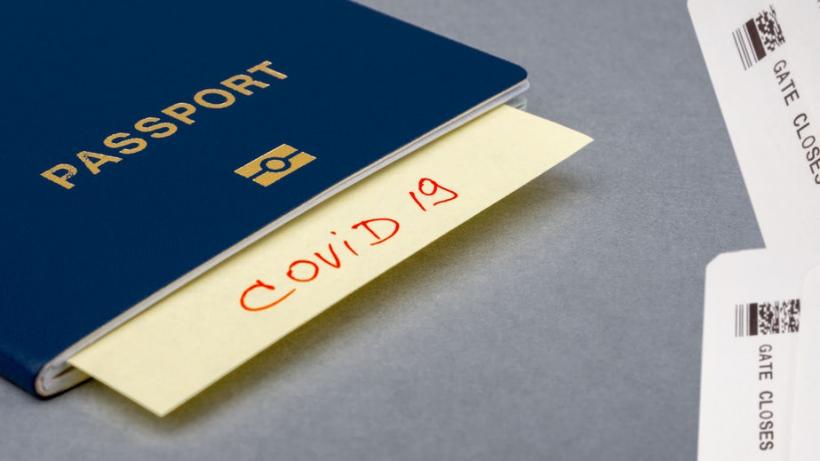
Last Updated: March 8, 2021
As Canada, the U.S. and other countries introduce new COVID-related travel restrictions and testing requirements, travel has become much more difficult for snowbirds.
It has also made it challenging for snowbirds to keep track of all the rules and restrictions they must comply with when planning travel to their winter destinations and back to Canada, since rules and restrictions can change frequently and with little or no warning.
Accordingly, we’ve created this one-stop guide for COVID travel rules, restrictions and testing requirements to help keep snowbirds informed when making travel plans.
While we will do our best to keep this information up-to-date, rules are changing frequently so we also suggest that snowbirds check www.travel.gc.ca and Canada.ca for travel requirement updates from the Government of Canada, as well as the official government travel requirement websites for any other countries you plan on travelling to or from.
In addition, we also suggest that snowbirds travelling outside Canada consider registering with the Government of Canada’s Registration of Canadians Abroad service to receive travel-related updates that may affect them.
Travel Advisories
On March 14, 2020, the Canadian government implemented a Level 3 Travel Advisory advising Canadians to avoid all non-essential travel outside Canada.
It also issued a Level 4 Travel Advisory advising Canadians to avoid all cruise ship travel.
Both travel advisories are still in place.
All flights suspended between Canada, the Caribbean and Mexico
On Jan. 31, 2021, all flights between Canada and Mexico, Canada and the Caribbean and Canada and Costa Rica were suspended until April 30, 2021, and this date may be extended depending on the COVID situation at that time.
This includes flights operated by Air Canada, WestJet, Air Transat and Sunwing. These airlines will operate a limited number of repatriation flights for their customers in these destinations. Snowbirds should contact their travel agent or airline for further information.
Entering Canada by air and land
Pre-flight / pre-arrival negative COVID test required
Canadians are required to have a COVID test within 72 hours of travelling back to Canada from all international destinations - including the U.S.
The test must be performed using one of two types of COVID-19 tests:
- a molecular polymerase chain reaction (PCR) test, or
- a Loop-mediated Isothermal Amplification (LAMP) test
For detailed information and future updates about this policy, we also encourage you to visit Transport Canada’s COVID-19 testing requirements for travellers entering Canada page.
For air travellers, the COVID test must be conducted within 72 hours prior to the scheduled boarding time of your flight to Canada and, unless otherwise exempted, travellers must provide written or electronic documentation to the airline prior to boarding a flight to Canada proving the test result was negative.
Only written or electronic proof of a negative laboratory test result will be accepted for boarding, otherwise, boarding will be denied by the airline.
For individuals entering Canada by land, the COVID test must be conducted within 72 hours of arriving at the border crossing and the test must be performed in the United States. Canadian citizens and permanent residents who fail to present a negative COVID test that meets the criteria outline above at the land border will not be denied entry to Canada, but will face fines of up to $3,000.
In addition, the Prime Minister stated that for individuals who do not present a valid negative COVID test at the land border, the government will "ensure a rapid and complete followup to make sure that they are getting tested, that they are being properly quarantined, that they are not putting at risk the safety of other Canadians by returning home without a clear negative test".
Pre-Departure ArriveCAN Submission:
All travellers flying to Canada must use the ArriveCAN website or mobile app to submit the following information:
- travel and contact information
- your quarantine plan
- COVID-19 symptom self-assessments
For air travellers, this information must be submitted prior to boarding your flight to Canada. This requirement is currently in effect for air travellers.
For land travellers, this information must be submitted prior to arriving at the Canadian border. This requirement will come into effect for land travellers on February 22, 2021. Until that time, if you are travelling to Canada by land, you are strongly encouraged to submit your travel information through ArriveCAN prior to your arrival. This will speed up processing at the border and limit points of contact. Show your ArriveCAN receipt to the border services officer.
You can learn more about ArriveCAN requirements for air travellers here.
COVID testing upon arrival in Canada
As of February 22, 2021, all individuals arriving in Canada by air and land are also required to take a PCR COVID test upon arrival in Canada.
Air passengers are required to take this test prior to leaving the airport and land travellers are required to take this test at their land border crossing.
For air travellers, international flights are limited to four airports in Canada at the moment – Montreal, Toronto, Calgary and Vancouver.
For individuals entering Canada by land, on-site testing is already required at 5 major border crossings and will be implemented at an additional 11 border crossings by March 4, 2021, with other border crossings to follow.
Quarantine Plan and Mandatory 14-Day Quarantine
All travellers arriving in Canada by air and land are required to provide an adequate quarantine plan and quarantine for 14 days upon arrival. If your quarantine plan is deemed to be unsuitable, you will be required to quarantine in a government facility.
You can find more information from the Government of Canada about quarantine plans and mandatory 14-day quarantine requirements here.
Mandatory hotel quarantine for air travellers
As of February 22, 2021, all individuals arriving in Canada by air are required to spend the first part of their quarantine in a supervised government-approved quarantine hotel at their own expense, until their test results come back, which is expected to take approximately 3 days.
The government has stated that at this time, it will not require mandatory hotel quarantines for travellers entering Canada by land.
Air travellers must book their hotels through the process mandates by the Federal government, which can be found here. Travellers will be responsible for making their own hotel bookings at government-approved hotels in the city in which their international flight arrives.
The government has stated that the cost to travellers for this mandatory hotel stay and COVID testing will be approximately $2,000 per person, depending on the hotel, length of stay and other factors. The price will include costs associated with the hotel room, food, cleaning, infection prevention and control measures, security and transportation.
If your test is negative, you may go to your home and complete the remainder of your 14-day quarantine there, under what the Prime Minister has described as “significantly increased surveillance”. This increased surveillance will be conducted by private security firms who have been hired by the Federal government to monitor travellers who are quarantining at home.
If your test is positive, you will be required to go to a government-run quarantine centre. There will be no charge for the government-run quarantine centres for those who test positive.
Additional COVID test on Day 10 of quarantine
All travellers arriving in Canada by air and land will also be required to be tested again on Day 10 of their quarantine, regardless of their initial test result.
Violating any quarantine instructions provided when you enter Canada is an offence under the Quarantine Act and could lead to up to six months in prison and/or up-to $750,000 in fines.
Entering the U.S. by Land
Under the Canada – U.S. land border closure agreement, which was first entered into on April 20, 2020, and has been extended on a monthly basis since that time, Canadians are not allowed to travel to the U.S. by land for “non-essential” travel.
Entering the U.S. by Air
Pre-flight negative COVID test required
As of January 26, 2021, the United States now requires all travellers who fly to the U.S. from another country to get tested for COVID-19 no more than 72 hours before their flight departs and to present the negative test result to the airline before boarding their flight.
Passengers who are unable to meet the criteria of this new policy will be denied boarding.
This new directive was issued by the Centers for Disease Control and Prevention (CDC)
The new testing requirement applies to all air passengers, 2 years of age or older, travelling into the U.S., including U.S. citizens and permanent residents.
The test must be a viral test and not an antibody test.
If you have already had COVID-19 and meet certain criteria, you may present “documentation of recovery” as an alternative to a negative COVID test result. You can learn more about this alternative on the CDC website.
Where can Canadians get a COVID test to fly to the U.S.?
In most Canadian provinces, free COVID testing from public health facilities such as hospitals is not available to individuals who are seeking testing for travel purposes, as these tests are reserved for individuals who are experiencing symptoms of COVID-19 or have been exposed to COVID-19.
Most snowbirds seeking a COVID test for the purpose of travelling to the U.S. must find a local private lab, travel medical clinic or other private company that provides COVID testing that meets the criteria outlined by the CDC.
Before booking an appointment with a testing company, you’ll want to check their policy on turnaround times to make sure they can provide you with your test result in the required 3-day timeframe prior to your flight.
You’ll also want to make sure they can deliver your test result in a format that meets the CDC’s guidelines.
The cost of obtaining a COVID test from a private company in Canada varies based on location and the provider, but the cost is generally in the range of $160 - $250 per test.
Mandatory Quarantine Upon Arrival in the U.S.
On January 21, 2021, U.S. President Joe Biden issued an executive order requiring international air travellers to quarantine upon arrival in the U.S.
The order has not come into effect yet, but is expected to come into effect in the near future.
The order states that air travellers arriving in the U.S. must comply with the U.S. Centers for Disease Control and Prevention (CDC) guidelines concerning international travel, including recommended periods of self-quarantine - where feasible.
Currently, the CDC recommends a 7 – 10 day quarantine period for people arriving in the United States from most countries, depending on their specific circumstances.
What if you’ve already had COVID-19?
If you have already had COVID-19, you are not exempt from any existing mandatory quarantine requirements.
However, travellers who have had COVID-19 may be exempt from pre-arrival COVID testing requirements when arriving in Canada and the U.S. if you meet the following criteria and present the required documents:
-
Travelling to Canada: Travellers who have previously tested positive for COVID-19 must provide proof of a positive COVID-19 molecular test conducted between 14 and 90 days prior to departure, instead of a negative COVID-19 molecular test.
-
Flying to the U.S.: If you have already had COVID-19 and are flying to the U.S., you may present “documentation of recovery” as an alternative to a negative COVID test result.
What if you’ve been vaccinated for COVID-19?
Being vaccinated does not exempt you from any existing mandatory quarantine or COVID testing requirements.
Future travel restrictions and changes to existing restrictions possible
Snowbirds should be aware that additional travel restrictions or changes to existing restrictions may be enacted in Canada, the U.S. and elsewhere that could make it even more difficult for Canadians to travel abroad or return to Canada.
In addition, these travel restrictions could be implemented quickly and without warning, and may be extended for an indefinite amount of time.
















